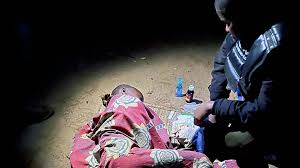Fears of malaria spread in Africa as study finds resistance to frontline drug
A ground-breaking study from Uganda has unveiled the first evidence that young African children with severe malaria may be developing partial resistance to artemisinin, one of the world’s most powerful malaria drugs.
The findings were presented at the Annual Meeting of the American Society of Tropical Medicine and Hygiene (ASTMH) and published in the Journal of the American Medical Association (JAMA).
Researchers documented that among 100 children aged 6 months to 12 years, treated for severe malaria caused by Plasmodium falciparum, 11 displayed partial resistance to artemisinin.
More troubling was that 10 children suffered a relapse of malaria within 28 days, despite seemingly successful treatment, indicating that the drug failed to eliminate the original infection completely.
“This study is the first in Africa to demonstrate that children with severe malaria are exhibiting partial resistance to artemisinin,” explained Dr. Chandy John, director of the Indiana University School of Medicine Ryan White Center for Infectious Diseases and Global Health and co-author of the study.
“Moreover, it is the first evidence of African children experiencing subsequent malaria episodes with the same strain of the parasite despite standard artesunate and ACT (artemisinin combination therapy) treatments,” he added.
Artemisinin therapies, introduced 20 years ago, were heralded as a breakthrough in combating malaria due to their rapid action and effectiveness where other treatments had failed. However, signs of resistance were first reported in Cambodia in 2008, spreading across Southeast Asia.
READ ALSO: First shipment of malaria vaccines to arrive in Nigeria Thursday NPHCDA
Evidence of its emergence in Africa, especially in children, is deeply concerning given that the continent accounts for 95% of the world’s 608,000 malaria deaths annually, primarily affecting children under five.
During the study, 10 children carried malaria parasites with genetic mutations linked to artemisinin resistance in Southeast Asia. While such mutations have been found in less severe malaria cases in Africa, this study marks the first discovery of their presence in children with severe, life-threatening malaria. Dr. John explained that these patients were considered partially resistant according to the World Health Organization’s standards, as their parasite clearance took over five hours.
“Partial resistance in malaria parasites poses a grave threat to global malaria control efforts,” said Dr. John. He noted that resistance often begins with slower parasite clearance before evolving into complete drug failure, as observed in Southeast Asia. “We must urgently investigate and address this pattern to prevent widespread resistance in sub-Saharan Africa.”
The study involved administering intravenous artesunate followed by oral ACT containing artemether and lumefantrine, regarded as the gold standard for severe malaria treatment. Yet, the recurrence of infections in many children raises questions about lumefantrine’s efficacy, given its vital role in ensuring any remaining parasites are eliminated after artemisinin treatment.
Dr. John highlighted that some children exhibited slower responses to therapy, prompting the shift in research focus to drug resistance. “It’s alarming that we detected resistance even before deliberately searching for it,” he remarked. “Even after intensifying our investigations, we found children experiencing recurrence after presumed cures, signaling the gravity of the situation.”
The study calls for increased monitoring and policy action to tackle potential resistance in African malaria treatments. Effective management, new drug combinations, and continued vigilance are crucial to preserving the efficacy of current treatments and safeguarding children across Africa from life-threatening malaria.
Follow the Neptune Prime channel on WhatsApp:
Do you have breaking news, interview request, opinion, suggestion, or want your event covered? Email us at neptuneprime2233@gmail.com





